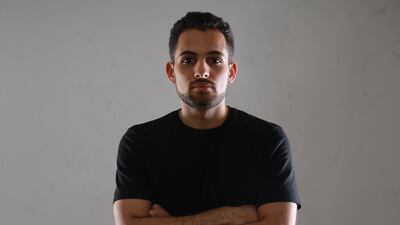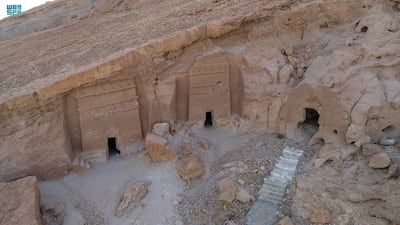For choreographer Hashem Hussain, dance is everything. Not content with teaching, Hussain made the move from Los Angeles back to his native Saudi Arabia to be part of an artistic revolution taking place in the kingdom.
“Dance is my passion,” he says as he walks through one of Jeddah's new art galleries preparing for a shoot with a Saudi fashion brand. “But I want to contribute to the community with bigger projects than just teaching dance classes.”
Up until a few years ago, Hussain, 27, says none of this seemed possible. Then Crown Prince Mohammed bin Salman helped open the door for young people to burst onto the art and creative scene with the kingdom’s Vision 2030 – an ambitious set of reforms that seek to change almost every aspect of life in the country.
In the last five years since Vision 2030 launched, Saudi Arabia has brought in innumerable legal and bureaucratic reforms but also opened to foreign tourists, hosted major sporting events and created one of the region’s newest major entertainment sectors that include headline acts like MDL BEAST, the largest international music festival in the region.

“With me teaching and creating shows I believe I am contributing to the quality of life and helping the community development through art,” Hussain says. “[Any] negative connotations around art and dance have been lifted from people's minds, all thanks to Saudi Arabia and their efforts to create a better life for all of us.”
Most of Hussain's students are young girls passionate about dance who have finally found a venue within their country to explore their potential.
Five years ago, this too would have seemed like a dream since the mixing of genders was limited. However, with gender equality squarely part of Vision 2030, opportunities for women are opening up.
Five years ago, women were not allowed to drive. Today, Saudi women are racing in F1 events. They are also DJ-ing at public events and taking their place as the chief executives of major businesses.
“With the changes that the kingdom has implemented, I was able to get more opportunities to create shows and perform on different stages. This helped me grow as an artist and improve my quality of life, as I am able to practice my art with no walls,” Hussain says.
Since moving home in 2017, the engineering graduate has trained performers for major events, including at the Dakar Rally in Qiddiya.
On returning to Jeddah, he opened up a hip-hop and dance studio. But, he decided the best way to generate a buzz around dance in the kingdom was to get on a major TV show in the region.
“We figured the best opportunity for us to be established in the Middle East was to audition for Arabs Got Talent 2019, which we did and got in,” he recalls. Hussain got a so-called “golden buzzer” in the first round of the show that instantly took him through to round two – and sparked a lot of talk on social media.
His ties to showbiz events continue.
“[In] 2020, I had what I would say was one of my dreams come true,” he explains. “I got a chance to choreograph for an artist, and what a better artist than Hamza Hawsawi – the Saudi winner of X-Factor.”
Hussain performed on stage alongside Hamza, which he described as “an honour”.
“Dance and music go hand in hand, like salt and pepper,” he says, adding that since he was 10 years old he has been listening to music – especially his favourite, R&B.
“To work alongside another Saudi artist that creates A-list R&B music is a huge achievement for me. I hope I get more opportunities like that in the future.”











